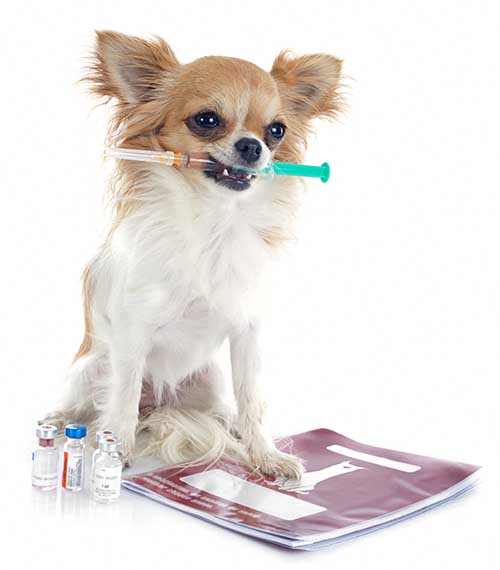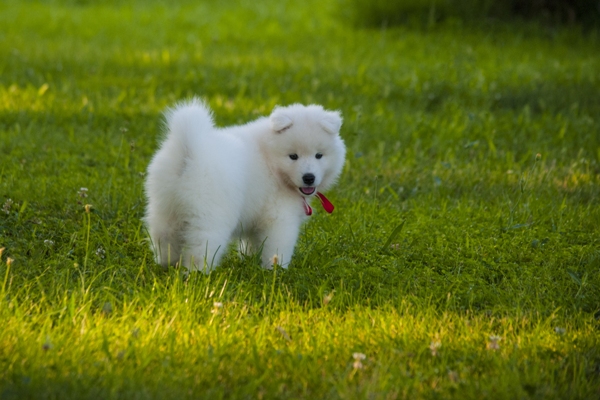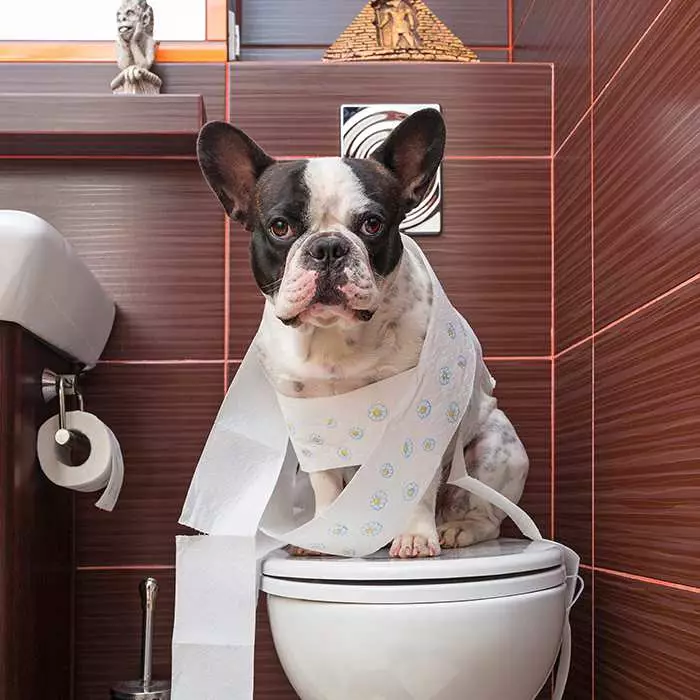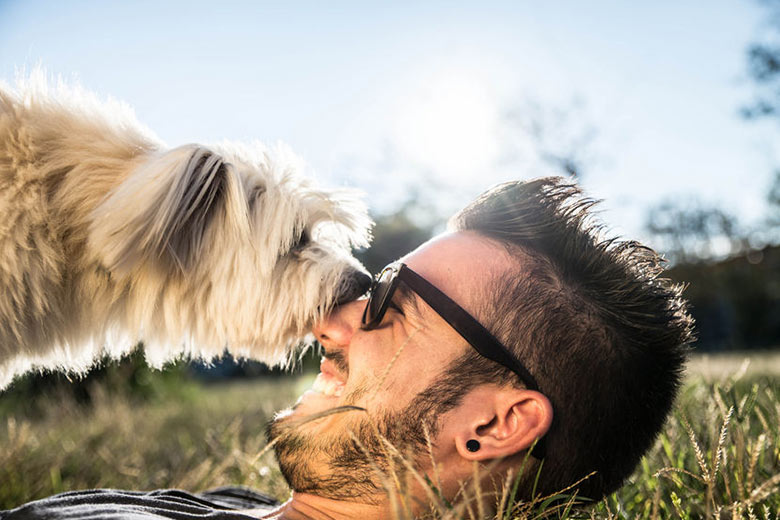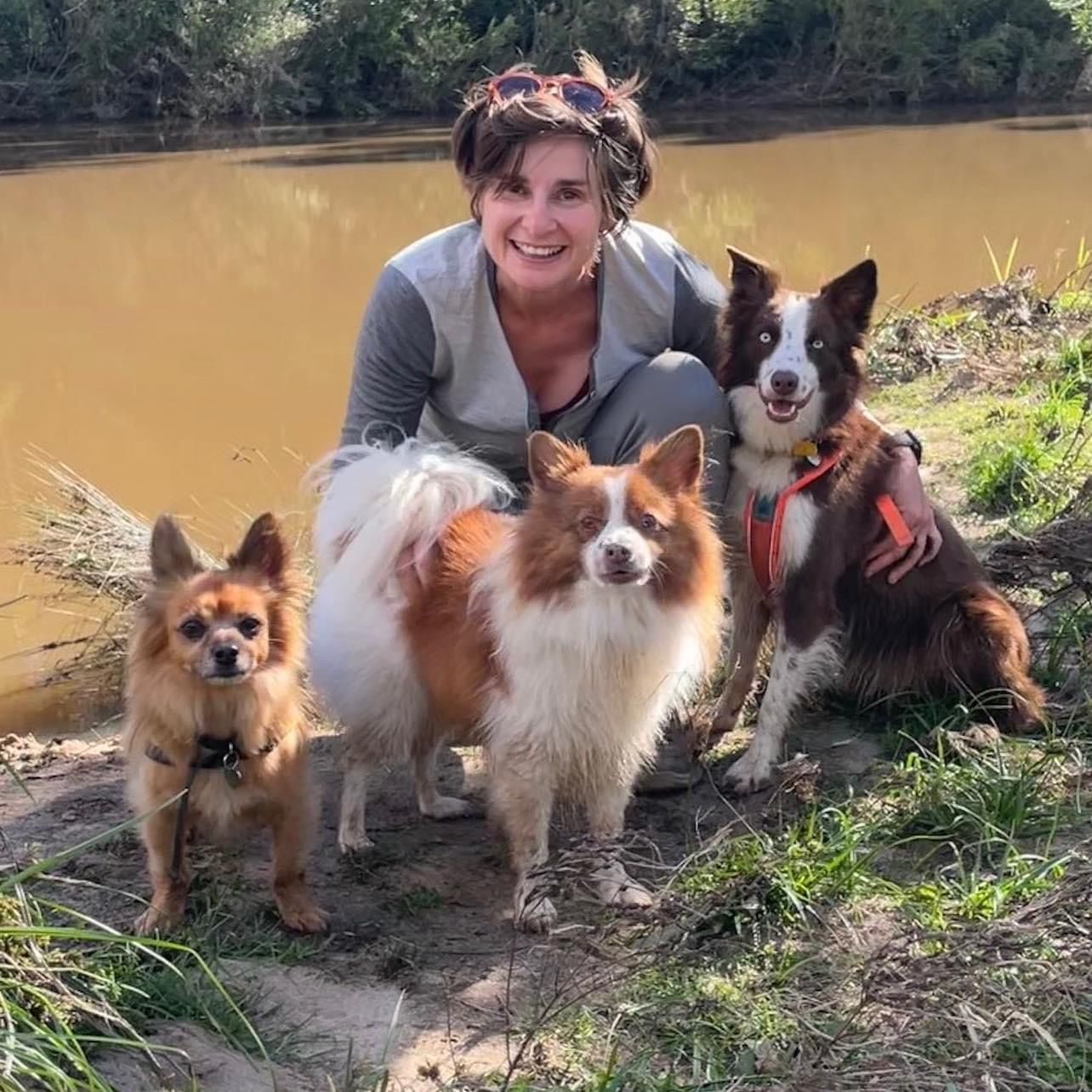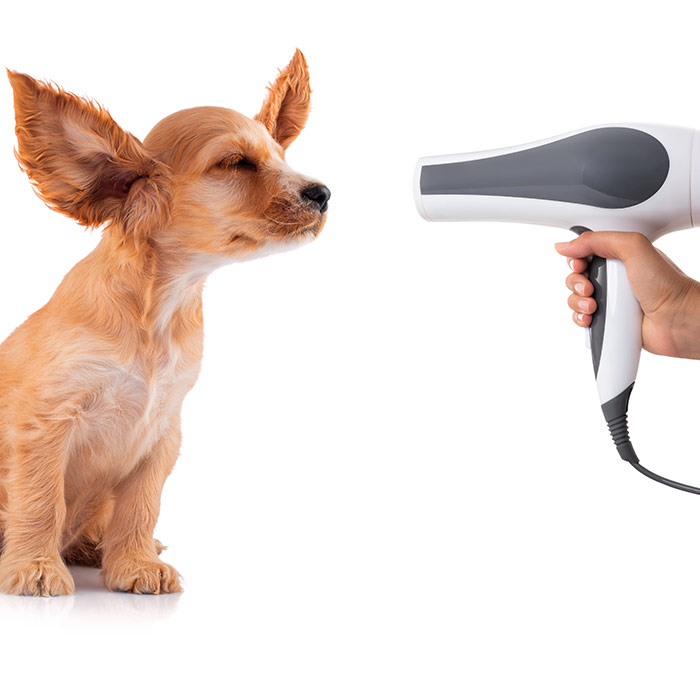Puppy care & health: how to care for your new puppy
Taking care of your puppy’s health
 Once your puppy settles in with you, we suggest that you make an appointment with your vet of choice for a check-up. Use this initial vet appointment to discuss puppy care and general puppy health as well as any concerns or issues you might have. The vet will also use the opportunity to check your puppy’s weight, overall health and its vaccination status.
Once your puppy settles in with you, we suggest that you make an appointment with your vet of choice for a check-up. Use this initial vet appointment to discuss puppy care and general puppy health as well as any concerns or issues you might have. The vet will also use the opportunity to check your puppy’s weight, overall health and its vaccination status.
Most breeders would have had a last vet check prior to your puppy’s departure and will give instructions as to when your puppy is due for his second vaccination and next worming. If this is the case, schedule your first vet visit for when this is due.
 If your breeder or the organisation you got your puppy from has not given you much information about new puppy care or general puppy health, or you are concerned about something, we recommend that you set up a vet appointment soon after your puppy arrives home.
If your breeder or the organisation you got your puppy from has not given you much information about new puppy care or general puppy health, or you are concerned about something, we recommend that you set up a vet appointment soon after your puppy arrives home.
When going for your first vet visit, ensure that you carry your puppy in and avoid contact with other dogs until your puppy had his second vaccination (unless advised otherwise by your vet). Bring plenty of treats with you to make your puppy’s first vet visit a positive experience.
How to care for a puppy
Puppy care is a big responsibility. Puppies are very adventurous and highly accident prone, and often end up hurting themselves whilst they are still growing. Their underdeveloped immune system means they are also vulnerable to getting infections and catching diseases.
To ensure that your new puppy gets off to a happy and healthy start, you should be aware of some essential puppy well-being and new puppy care topics. Knowing how to care for a puppy includes having accurate information about things such as vaccinations, dental and coat care, tick, flea and worm control, kennel cough and de-sexing.
Puppy vaccinations
Puppies need to be vaccinated to protect them from certain diseases, some of which can be very serious or even fatal. The earlier he gets his vaccinations, the earlier you can start socialising your puppy without worrying about him catching anything nasty.
Your puppy will have received his first vaccination at the breeder between 6-8 weeks of age. You are responsible for taking your puppy for his second and third vaccinations. These tend to be four weeks apart from each other – we recommend following your vet’s advice on actual timing.
Learn more about puppy vaccinations here.
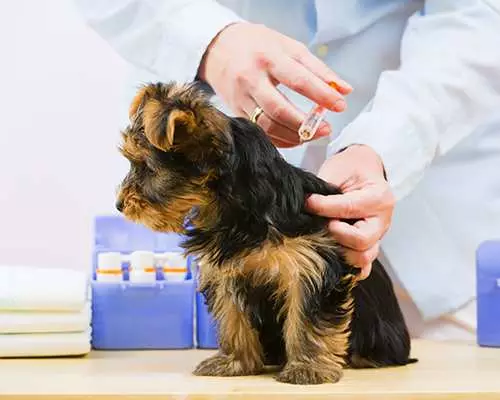
Dental care for puppies
Optimal puppy care includes establishing a good oral hygiene routine from an early age. Unfortunately, once dogs reach around three years old, many start experiencing some form of dental disease caused by plaque build-up and infection.
Prevention is possible with a well-balanced diet, regular dental check-ups and teeth brushing, all of which help to remove plaque from the teeth and increase the likelihood of a healthy mouth. For successful teeth brushing, puppies need to be trained to tolerate having a toothbrush in their mouths from a young age.
Learn more about puppy dental care here.
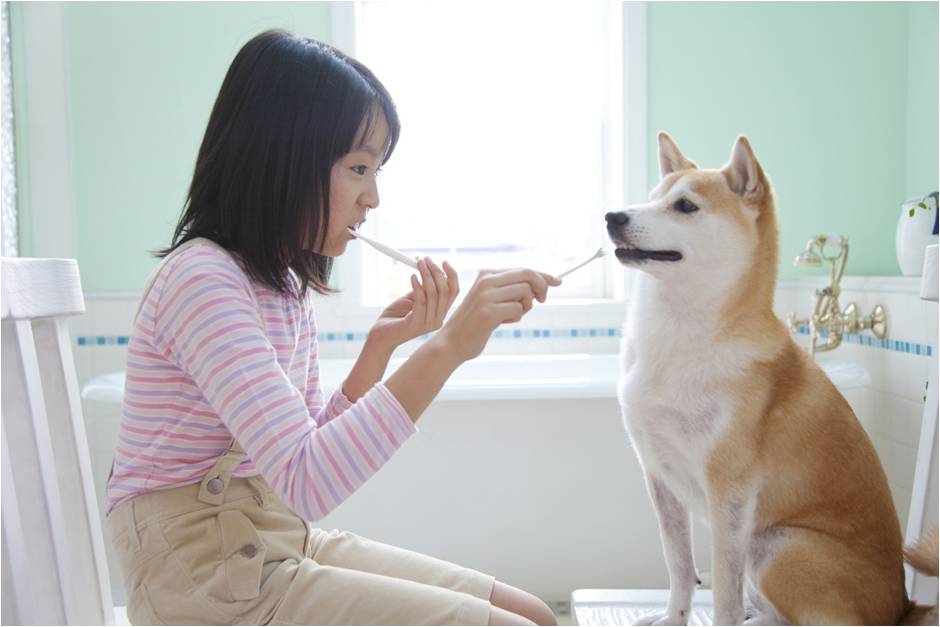
Coat care for puppies
An important part of maintaining puppy well-being is ensuring he or she has a healthy skin and coat, and puppyhood is the time to start a grooming routine to get him used to being brushed and bathed. Regular coat brushing with a soft bristle brush is an important aspect of puppy care and daily brushing is recommended for long-haired dogs. Reward him with plenty of verbal praise and even treats if he remains still while you groom.
Give your puppy a bath about a once a month, using warm water. Wash your puppy’s coat with shampoo only when necessary using a good quality dog shampoo, never a human shampoo. If he is small, use the bathroom sink; if he is too big for the sink, use the bathtub. Make sure he learns that bath time is fun by giving him lots of praise and encouragement, and even some treats, throughout the washing and drying process — whatever it takes to help him enjoy getting clean.
Learn more about puppy coat care here.
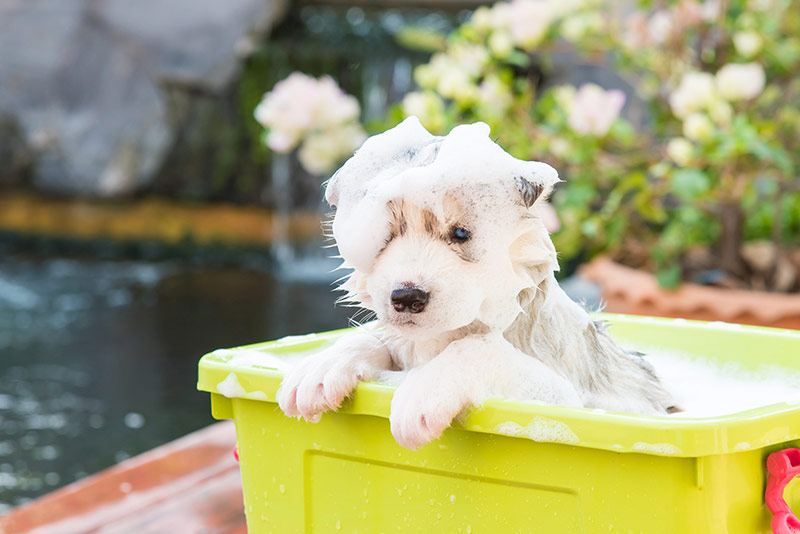
Kennel cough in puppies
Kennel cough is a virus that can be caught by your puppy even if it has been vaccinated. It’s like having the flu, and a puppy with kennel cough will be coughing and feeling miserable. It is recommended you take your puppy to the vet and keep it under strict quarantine to avoid spreading the kennel cough.
Carry your puppy into the vet and avoid contact with other dogs until your puppy gets a clean bill of health. Although kennel cough can sound terrible, most of the time it is not a serious condition, and most dogs will recover without treatment.
Learn more about kennel cough here.
Worming puppies
 Worming your puppy is an important part of puppy care and puppies need to be wormed regularly to avoid illness. Contrary to what you may think, worms have nothing to do with hygiene and can be passed to your puppy through its mother’s milk. Until their first vaccination, puppies need to be wormed every two weeks. After that the recommended frequency is four times a year.
Worming your puppy is an important part of puppy care and puppies need to be wormed regularly to avoid illness. Contrary to what you may think, worms have nothing to do with hygiene and can be passed to your puppy through its mother’s milk. Until their first vaccination, puppies need to be wormed every two weeks. After that the recommended frequency is four times a year.
Worming should be performed regardless of whether worms are seen in poo or not, as many worms are too small to be seen with the naked eye. If you do find worms in your puppy’s poo, deworm your puppy immediately, even if he might not be due for another couple of weeks. Worms can make your puppy feel lethargic, vomit, have diarrhoea and even lose hair.
Learn more about worming here.
Heartworm and puppies
Heartworm is a serious disease which is present in many locations. It is spread by mosquitoes when they bite dogs, leading to an infestation of long thin worms lodged in the heart which feed on surrounding blood. Prevention of heartworm in affected areas is an essential aspect of puppy care and is relatively simple, with various preventative products available, including monthly spot-on’s and an annual injection. Puppies should begin heartworm prevention by 12 weeks of age.
Learn more about heartworm here.
Ticks on puppies
Spring and summer are peak season for these nasty little creatures. Ticks are dangerous as they can transmit diseases. A bite from a paralysis tick can cause paralysis and other serious health problems for your puppy. To protect your puppy there are various tick prevention products on the market. Please consult with your vet as to which is the best product for your area and your puppy. If you live in a tick area, daily tick checks are recommended.
Where to check for ticks:
- Check your dog’s fur top to bottom
- Check in between its paws
- Check gums
- Check inside ears
- Check eyelids and near the nose
- Ticks like it where it’s warm and moist
How to remove a tick using tweezers:
- Grasp the tick as close to your dog’s skin as possible, but be gentle! Try not to pinch your dog’s skin.
- Pull outward in a straight, steady motion, making sure that you’ve removed the entire tick, since anything left behind could lead to an infection
- Please do NOT place petroleum, fingernail polish or other such substances on the tick, this will just increase the chance of an infection.
Learn more about ticks here.

Fleas on puppies
Fleas are the main cause of skin disease in dogs, so flea control is an essential aspect of puppy care. It is very important that you use flea prevention treatment as directed to avoid the painful consequences of infestation.
Fleas can not only live on your puppy, their eggs can survive for months in carpets, dog beds and any other area where your dog likes to lie. Therefore, getting rid of the fleas on puppies may only be successful for a short period, as once your puppy goes back to the flea infested areas it can act as a host and the flea cycle can start all over again.
If you find fleas, it is recommended that you wash all bedding and other areas where your puppy has been hanging out. It may also be necessary to flea bomb your house.
Learn more about fleas here.
Puppy de-sexing
Responsible dog ownership means spaying or neutering your dog, which is best done when your puppy is under 6 months of age. There are various reasons for de-sexing, with the biggest one being to prevent your dog from having unexpected puppies. There are already thousands of unwanted dogs in pounds across Australia, with many animals put down every year.
Please consult with your vet early on about de-sexing your puppy – he/she will guide you as to the best time and procedure for your puppy, as this can vary depending on factors such as the dog’s sex, size and age.
Learn more about desexing here.
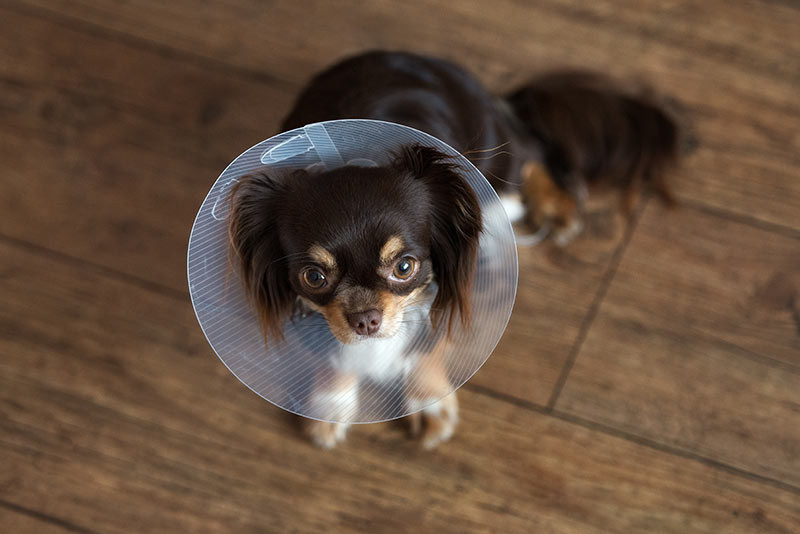
Puppies are very adventurous and highly accident prone, and often end up hurting themselves whilst they are still growing. Their underdeveloped immune system means they are also vulnerable to getting infections and catching diseases.
Consider pet insurance to help protect you and your puppy from the start. Get your first 2 months cover free 2!
Bow Wow Meow Pet Insurance can help protect you and your puppy should an unexpected trip to the vet occur.






